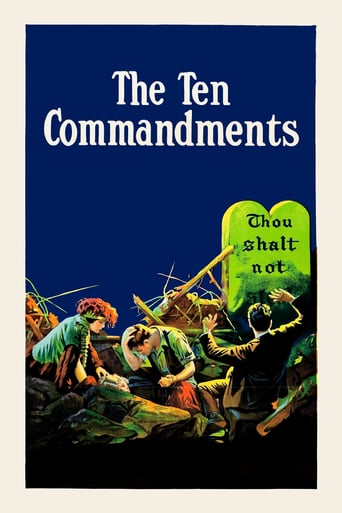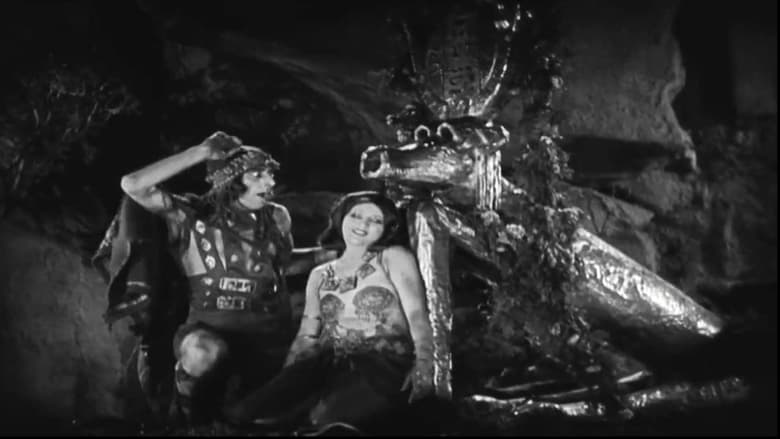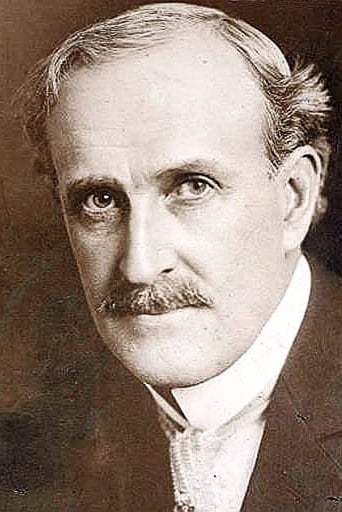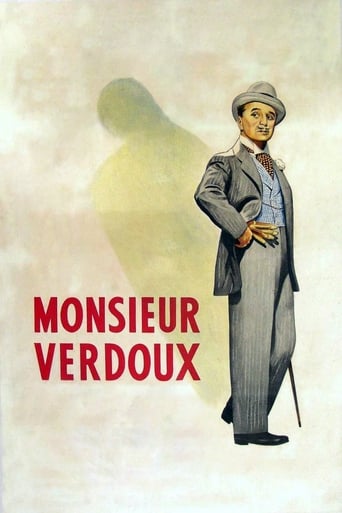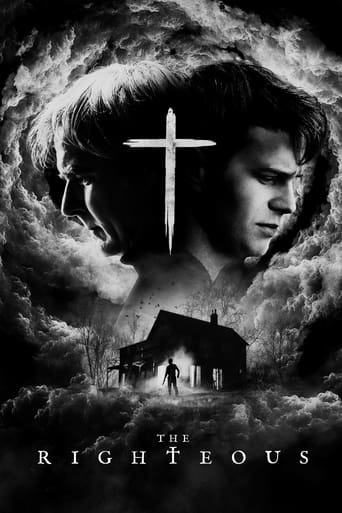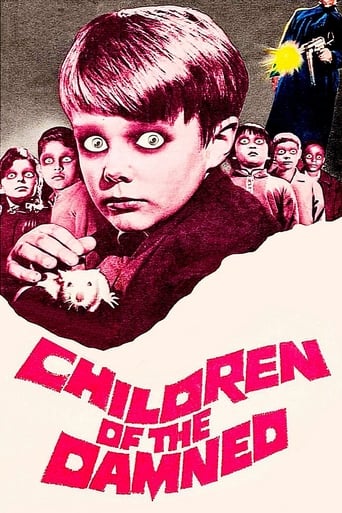The Ten Commandments (1923)
The first part tells the story of Moses leading the Jews from Egypt to the Promised Land, his receipt of the tablets and the worship of the golden calf. The second part shows the efficacy of the commandments in modern life through a story set in San Francisco. Two brothers, rivals for the love of Mary, also come into conflict when John discovers Dan used shoddy materials to construct a cathedral.
Watch Trailer
Cast


Similar titles
Reviews
Undescribable Perfection
Such a frustrating disappointment
The plot isn't so bad, but the pace of storytelling is too slow which makes people bored. Certain moments are so obvious and unnecessary for the main plot. I would've fast-forwarded those moments if it was an online streaming. The ending looks like implying a sequel, not sure if this movie will get one
The film never slows down or bores, plunging from one harrowing sequence to the next.
When I reviewed "The Ten Commandments" (1956), I received a lot of 'Not Helpful' ratings. I assume this is because, unlike the average review, I did NOT particularly like the film and said so. Once again, I buck the crowd as I definitely did NOT like this previous version as well. In the case of both films, I seriously wonder whether or not the movies actually were a boon to atheists because the films were so incredibly bad--even with the incredible Egyptian sets.Unlike the more famous 1956 version, only the first 56 minutes of the film are about the Jews and the creation of the Commandments. The biggest differences you'll notice is that Moses is a very superficial character--and has very little to do in most of the film. In addition, the Children of Israel actually leave Egypt about 20-25 minutes into the film--and it's a 136 minute film. The rest of the film is actually set in the present day (1923) and is a very, very heavy-handed morality tale with absolutely no hint of subtlety--none. It comes on so strong and heavy-handed that I am sure many will laugh at its histrionics and silly plot.So what is to like about this film. Well, first and foremost, the DVD copy is perhaps the most pristine I have ever seen in a silent film--it's very, very crisp and clean. And, the Egyptian sets (as I mentioned above) are very nice. Apart from that, the rest is just pretty silly. The famed parting of the red sea looked like melty jello. And, imagine my surprise when I later read on IMDb that's really all it was!!! And, as for the story it was bad in two serious ways. First, the creation of the Commandments section was just too superficial and dispassionate--like the folks are acting out some half-baked passion play--where they really aren't too concerned with quality--just getting the stupid thing done! Second, the modern portion is much worse with it's message that comes across with all the subtlety of a 2x4 upside your skull!! As a result, unless you are a die-hard silent film fan or an atheist who hates God, don't bother with this silly film. Why Cecil B. DeMille has somehow been considered a genius for his (anti-) religious epics, I have no idea! By the way a few final thoughts. First, despite both of DeMille's films saying to the contrary, archaeological evidence AND written accounts of the day indicate the Jews did NOT build the pyramids but professional builders. Second, why did the Godly mother die in the film?! Didn't this seem to reinforce the notion that God is not real?! Talk about an illogically constructed religious message!! Though, now that I think about it, illogic was DeMille's forte--with nudity and bestiality in his other 'religious' epic "Sign of the Cross"!! And, though it was NOT a DeMille film, think about the original "Ben Hur"--as in the end, Jesus STAYED DEAD!!! What a whacked out message! All very Pre-Code in their sensibilities and all CLAIMING to be family religious entertainment!
DeMille's silent version of THE TEN COMMANDMENTS is really two films in one - specifically, a 90-minute feature introduced by a 45-minute prologue. The prologue is the familiar story of Moses (Theodore Roberts) and the Exodus from Egypt which plays like a rough sketch of the 1956 remake. As is typical of the silent DeMille oeuvre, a moral lesson is presented by juxtaposing two stories with parallel themes from widely different eras. The lessons here seem to be: ignore the Ten Commandments at your peril and love God. Just as the ancient Israelites suffered for their sins, the protagonist of the modern story (Rod LaRocque as a contractor who becomes wealthy by deceitful business practices) pays dearly for breaking one Commandment after another, and if ever there was an actor born to break them it was the sleek, devilishly handsome LaRocque. In this plot, he is pitted against his opposite: his own brother, the rough-hewn Richard Dix as an honest carpenter who plays by the rules and stays poor. The self-sacrificing Dix is so good-hearted that he gives up the woman he loves (Leatrice Joy) because he knows she loves LeRocque. Nita Naldi appears briefly and unforgettably as a leprous Eurasian vamp who plays a pivotal role in LaRocque's downfall.The prologue's special effects look crude by modern CGI standards but God's utterance of the Commandments in the form of shimmering titles against a whirl of sparks has a stylish beauty all its own, and the choreography of the Golden Calf worship looks as if it might have inspired Fritz Lang's crowd scenes in METROPOLIS a few years later. Charles DeRoche (whatever happened to HIM?) is impressive as Pharaoh Rameses.The feature benefits from excellent production values, generally fast pacing and stunning cinematography; the organ accompaniment is even above par, with imaginative use of the instrument. One problem: when characters come indoors after having been drenched to the bone in driving rainstorms their clothing appears to dry off way too quickly. And when Leatrice Joy steals a "hot dog" (which looks more like a hamburger) from a diner, and runs for blocks with it in the drenching rain, it seems to stay intact. It is also hard to believe that a woman could emerge, dressed in a full street suit, including hat and veil, from a trans- Pacific journey inside a sack of jute! But hey – this is the world of silent cinema.
Cecil B. DeMille's Paramount EPIC "The Ten Commandments" tells the Old Testament's "Moses" story during its first hour. The "special effects" highlights are: Theodore Roberts (as Moses) parting the Red Sea, and the Biblical patriarch's thunderous receiving of God's commandments. The production is first rate throughout. After about fifty minutes of spectacle, the film switches to a "Modern Story" - wherein Mr. DeMille seeks to tell a morality story involving "The Ten Commandments".For the main story (the more memorable Moses segments were a mere "prologue"), DeMille introduces the McTavish brothers - saintly carpenter Richard Dix (as John), and partying atheist Rod La Rocque (as Dan). While Mr. Dix stays home to read The Bible, with dear mother Edythe Chapman (as Martha McTavish), Mr. La Rocque breaks Commandments, with lovely Leatrice Joy (as Mary Leigh). Of course, Dix falls in love with Ms. Joy, after she becomes his brother's wife DeMille's morality tale is extremely heavy-handed, but nevertheless enticing, and expertly directed. The "Biblical" and "Modern" story format recalls D.W. Griffith's superior "Intolerance" (1916). The all-star cast (it's 1923, remember) performs exceptionally, with La Rocque being seen in one of his finest performances. As any actor will tell you, La Rocque was halfway there, upon receiving the "bad brother" role, over Dix - and, La Rocque runs away with the film. His is a "Best Actor"-worthy performance. Nefarious Nita Naldi (as Sally Lung) leads a strong supporting cast.All things considered, this one's a lot more fun than the 1956 re-make.********* The Ten Commandments (11/23/23) Cecil B. DeMille ~ Rod La Rocque, Richard Dix, Leatrice Joy, Theodore Roberts
Sunday January 8, 4:00pm The Paramount Theater, SeattleCountless slaves pull a gleaming white sphinx, inch-by-inch, across the desert sands. Brutalized by their cruel Egyptian masters, The Children of Israel toil before the monumental city gates of Pharaoh Rameses II. The opening scenes of Cecil B. DeMille's 1923 epic "The Ten Commandments" represent the historical spectacle of Hollywood's silent era at its grandest and most expressive. DeMille blended the intensely dramatic performance of his actors with the spectacular architecture of his sets in a way that seemed to bring the past to life for the movie going audience. His exhaustive research and striving for authenticity was limited only by his personal satisfaction. Of the roughly 2500 extras used one tenth were orthodox Jews from Los Angeles, many, recent immigrants who felt they were living the history of their ancestors. The flight from Egypt includes the added surprise of two-color Technicolor while the scenes of decadence as the Golden Calf is worshiped by an undulating mob are as vibrantly electric as any ever filmed. To be fair, it bears pointing out that the forty-five minute Ancient Egypt portion of "The Ten Commandments" is only a prologue to the modern story, which today seems dated and irrelevant. Two brothers, one good and one evil, alternately respect and defy the ancient laws of Moses and live with the consequences. The San Francisco setting may be of interest to anyone with ties to "the city by the bay", specifically the 1920's North Beach neighborhood, Saints Peter and Paul Church and Washington Square Park which are all prominently featured. Sexy Nita Naldi is also delightfully vampish as the heavy-lidded other woman draped in furs. The Jeanie Macpherson screenplay attempts to draw parallels between the story of Exodus and modern life, much more successfully accomplished in Michael Curtiz 1928 epic masterpiece "Noah's Ark", but the jazz age story can't hold a candle to the grandeur of the ancient world. DeMille's original does succeed if compared to the bloated, boringly over-detailed story and hammy acting of his 1956 remake. The 1923 prologue is concise, well paced and beautifully executed. The ancient Babylon of D. W. Griffith's 1916 spectacular "Intolerance" appears staged and remote when compared to a genuine sense of seeing and feeling the "hear and now" conjured up by DeMille's City of the Pharaoh. Hollywood produced progressively greater and more fantastic historical epics as the era drew to a close, including the MGM spectacle "Ben Hur" in 1925 and DeMille's "King of Kings" in 1927." the spirit of the spectacle, and the joy taken in its own magic, was unique to the silent film." - William K. Everson

